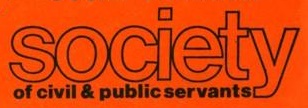Related Research Articles
The Amalgamated Carters, Lurrymen and Motormen's Union was a trade union representing commercial road transport workers in the north of England.
The United Order of General Labourers was a trade union representing labourers, mostly in the construction industry, in the United Kingdom.
The National Amalgamated Union of Enginemen, Firemen, Mechanics, Motormen and Electrical Workers was a trade union in the United Kingdom. It represented stationary engine drivers and cranemen in a wide variety of industries, as well as less skilled workers in the electrical industry and miscellaneous workers.
The United Fishermen's Union was a trade union in the United Kingdom.

The National Union of Scottish Mineworkers (NUSW) is a trade union in Scotland, founded in 1894 as the Scottish Miners Federation. It joined the Miners' Federation of Great Britain, and in 1914 changed its name to National Union of Scottish Mineworkers. It survives as the National Union of Mineworkers.
The National Union of Blastfurnacemen, Ore Miners, Coke Workers and Kindred Trades (NUB) was a trade union in England and Wales which existed between 1888 and 1985. It represented process workers in the British iron and steel industry.

The Society of Civil and Public Servants (SCPS) was a trade union representing middle-ranking civil servants in the United Kingdom.
The Communication Managers' Association (CMA) was a trade union representing managers in the United Kingdom, principally those working for the Post Office.
The Amalgamated Society of Leather Workers was a trade union representing tanners and workers involved in making leather goods in the United Kingdom.
The Lancashire Box, Packing Case and General Woodworkers' Society (LBPCGW) was a long-lived trade union in England, principally representing workers involved in making wooden boxes in the Manchester area.
The National Union of Packing Case Makers, Box Makers, Sawyers and Mill Workers was a trade union principally representing workers involved in making packaging in the United Kingdom.
The Amalgamated Society of Blacksmiths, Farriers and Agricultural Engineers was a trade union representing farriers and related workers in the United Kingdom. It was the leading union in its industry.
The Chain Makers' and Strikers' Association (CMSA) was a trade union representing workers employed in the manufacture of chains in the United Kingdom, principally in the West Midlands.
The General Iron Fitters' Association was a trade union representing stove dressers in Scotland, particularly in the Falkirk area.
The Amalgamated Instrument Makers' Society was a trade union representing workers involved in manufacturing scientific instruments in the United Kingdom.
The Bedstead Workmen's Association was a trade union representing workers making bedframes in the United Kingdom, particularly in the area of Birmingham.
The Cannock Chase Miners', Enginemen's and Surfacemen's Association was a trade union representing coal miners in the Cannock Chase area of England.
The Amalgamated Moulders and Kindred Industries Trade Union was a trade union representing semi-skilled moulders in the United Kingdom.
The United Operative Spindle and Flyer Makers' Trade and Friendly Society was a trade union representing workers involved in making textile machinery in the United Kingdom.
The Lancashire, Cheshire and North Wales Colliery Enginemen's, Boilermen's and Brakesmen's Federation was a trade union representing engine operators and related workers at coal mines in parts of England and Wales.
References
- ↑ Marsh, Arthur; Ryan, Victoria (1984). Historical Directory of Trade Unions. 2. Gower. pp. 133, 143. ISBN 0566021617.
- ↑ Kirkaldy, Adam Willis (1920). Industry and Finance. supplementary volume. London: Isaac Pitman & Sons. p. 65.
- ↑ Marsh, Arthur; Ryan, Victoria (1984). Historical Directory of Trade Unions. 2. Gower. p. 138. ISBN 0566021617.
- ↑ Smethurst, John B.; Carter, Peter (2009). Historical Directory of Trade Unions . 6. Ashgate. ISBN 0754666832.
- ↑ Black, Lawrence; Pemberton, Hugh (2017). An Affluent Society?: Britain's Post-War 'Golden Age' Revisited. Routledge. ISBN 9781351959179.
- ↑ "Edward Wood". Liverpool Daily Post. 25 November 1942.